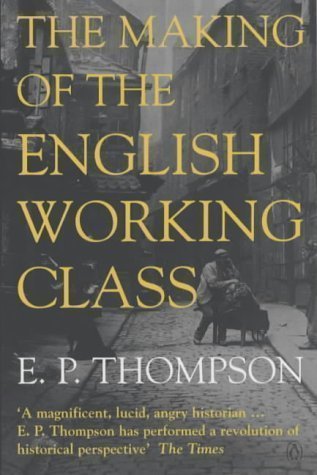What do you think?
Rate this book


Unbound
First published January 1, 1963
As I see it, the emergent underclass has no clear analogue in all of human history. There are older people living on reduced incomes but who own houses and have no student debt, yes. But it is primarily the very young who constitute this giant, unruly mass. The older generation at least has some memory of group solidarity (unions, churches, bowling leagues); but, for the young, I fear the worst. It seems to me that in our condition does indeed revert back to that of the early English working class, the days when riots, rather than strikes, were the dominant mode of political contention. It seems to me that we are inevitably reverting back to an era when riots MUST be the dominant mode of political contention: unemployment, underemployment, deskilling, and the decimation of organized labor make it inevitable that the strike-form will die out sooner rather than later.
As I see it, the need for electoral strategy emerges from the inevitability of the riots to come. Rather than leaders who will merely suppress the next anti-cop riot, we need officials who are willing to communicate with social movements. The issue, then, is two fold: a lack of acceptable politicians that fit this bill (Sanders, Keith Ellison would be two) and a complete lack of meaningful leadership that can reasonably claim to represent and articulate the demands of riotous social movements. Anarchists often speak as if it is necessary to "organize" riots - they are coming one way or the other, and anarchists will play, at best, a trivial role in them. The important thing for activists, then, is to make the state recognize riots as part of political discourse, and respond accordingly. The legacy of bread riots is kept alive across most of the world: a founding (if often suppressed) myth in France and Russia, for instance. And these riots have been on-going across the Global South since the onset of political modernity. The US, however, a perpetual land of affluence from the beginning, has no real sense of the bread riot in its collective memory or its collective political imaginary. For us, the riot can really only be the race riot.
As I see it, the catastrophe of the Trump presidency is that future suppression will be swift and brutal, and it is really only a matter of time before he follows Obama's own precedent to its logical conclusion and uses drones on American citizens on US soil. Even worse, it seems clear to me that something even worse is around the corner: if the Tea Party was a reaction to disappointment with neocon leadership, and Trump is a reaction to anger at the Tea Party, what will come when Trump's staunchest supporters are confronted with the reality of a man who doesn't appear to be very interested in following through with some of his more dire promises? Of course the deportations will continue and perhaps accelerate, but Trump must surely realize the economic devastation that would occur if he actually tried to rapidly deport 3 million people. It seems clear to me that, ultimately, Trump can never live up to his grandiose pledges on simply removing Latinos and on disciplining blacks. What happens when his dumbfuck supporters realize as much?
I'm mostly just trying out some ideas here, I guess. I wonder how much the rabble - a largely suppressed concept in political modernity, but a prominent one for the ancients (and Machiavelli!) - will become significant again. It seems clear to me that a major strategic mistake of the original Black Panthers was to focus on organizing the lumpen elements of the proletariat rather than industrial workers - this left them with a constant distraction of criminality and absurd internal violence. What comes now, when the industrial proletariat has ceased to exist and all that remains is a young, largely urbanized, underclass?
After the decline of the movement [English Jacobins] it became customary to disparage "poor Thelwall": in the early 19th century he was a figure of pathos—vain, haunted by a not unjustifiable sense of persecution, earning his living as a teacher of elocution. He also had the misfortune to be a mediocre poet—a crime which, although it is committed around us every day, historians and critics cannot forgive. De Quincey, who was brought up "in a frenzied horror of jacobinism . . . and to worship the name of Pitt" was only expressing the opinion current amongst the next generation of intellectual radicals when he referred to "poor empty tympanies of men, such as Thelwall". The opinion has followed him to this day.
'Class also acquired a peculiar resonance in English life: everything, from their schools to their shops, their chapels to their amusements, was turned into a battleground of class. The marks of this still remain, but by the outsider they are not always understood.'